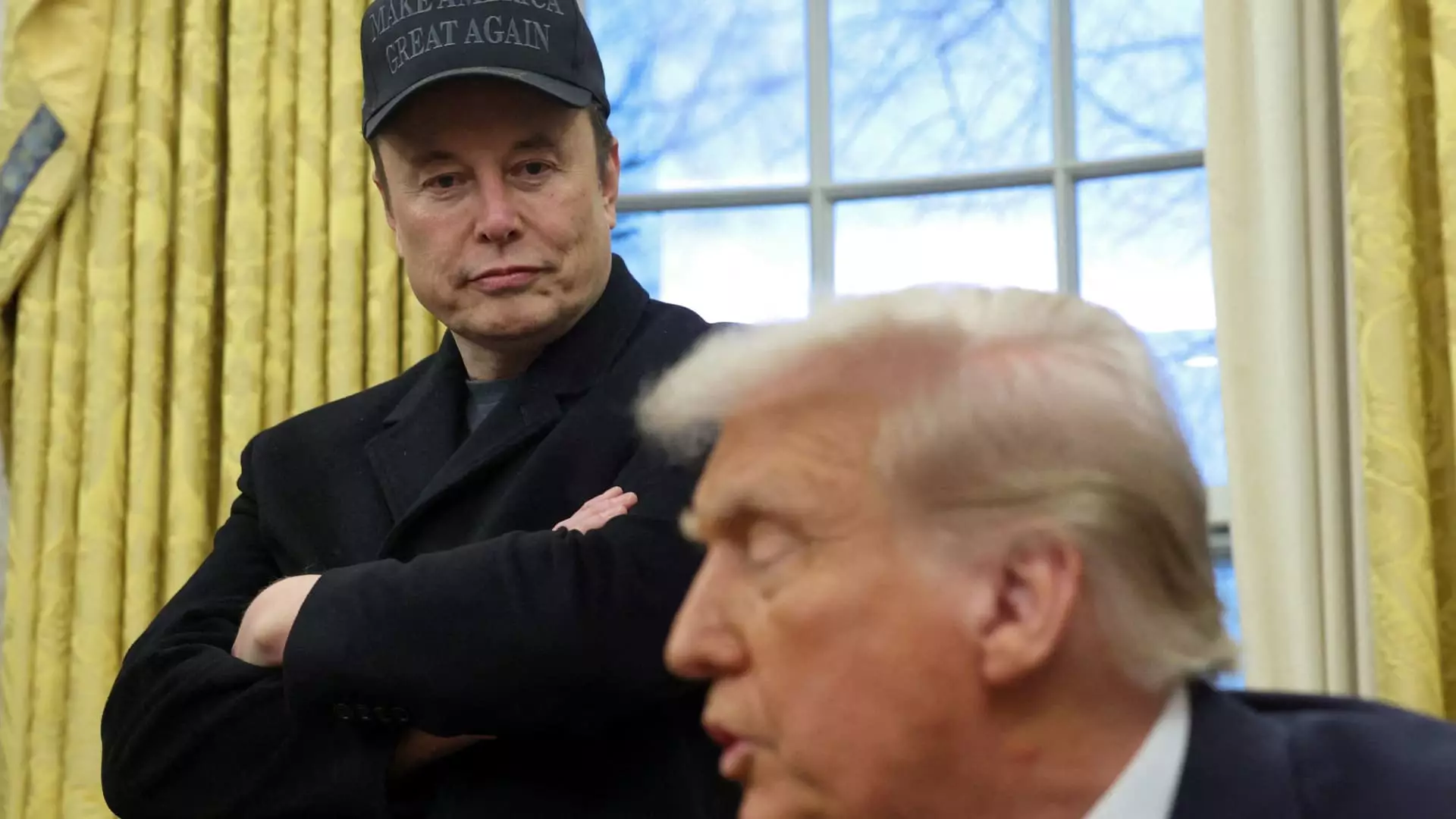In an increasingly interconnected world where digital platforms serve as the backbone of public discourse, the fallout between national laws and global technology companies has become a pressing issue. This tension has come to the forefront as Trump Media and Rumble, both advocates for conservative viewpoints, filed a lawsuit against Brazilian Supreme Court Justice Alexandre de Moraes. The conflict stems from de Moraes’s previous actions, which led to Elon Musk’s social media company, X, facing restrictions in Brazil. This lawsuit not only underscores the complexities of digital free speech but also highlights the potential repercussions of judicial authority across international borders.
The legal battle initiated by Trump Media, based in Tampa, Florida, alleges that Justice de Moraes has exercised undue influence over Rumble, a platform within its network. The lawsuit points to what it characterizes as de Moraes’s attempts to suppress a well-known politically outspoken figure on Rumble by issuing Gag Orders that could lead to the suspension of U.S.-based accounts. Importantly, the lawsuit underscores the interdependence of the two platforms: Truth Social, a social media site owned by Trump Media, utilizes Rumble’s cloud infrastructure. The plaintiffs argue that any action against Rumble could directly jeopardize their operations, making the stakes of this lawsuit remarkably high.
The importance of open discourse is central to the argument made by Trump Media, which argues that South American judicial actions cannot infringe upon the freedoms guaranteed by the U.S. Constitution. The lawsuit articulates a strong defense of free expression: “Allowing Justice Moraes to muzzle a vocal user on an American digital outlet would jeopardize our country’s bedrock commitment to open and robust debate.” It raises questions about how far governmental authority can extend into the operations of firms that predominantly serve American audiences but have a global footprint.
Political Dimensions and Implications
The lawsuit emerges as Brazil faces its own political turbulence, with former president Jair Bolsonaro charged with attempted coup involvement. This chaotic backdrop adds layers to the legal confrontation, suggesting that the geopolitical landscape is as influential as the legal arguments themselves. Bolsonaro’s alleged attempts to undermine Brazilian democracy by plotting violence against high-profile officials coincide with heightened scrutiny of how regimes manage dissenting voices on social media platforms. This illustrates a broader narrative: the way governments respond to digital expressions of dissatisfaction has far-reaching implications, not just within their own borders but on a global scale.
Additionally, the nexus between political and corporate interests is apparent in this situation. The lawsuit not only reflects the aspirations of Trump Media and Rumble to protect their platforms from foreign judicial encroachment but also connects to broader efforts by conservative entities in the U.S. to resist what they perceive as censorship by foreign governments or domestic regulatory bodies. The involvement of significant political figures, including Elon Musk, adds a layer of corporate influence that raises intriguing questions about the political alignment of technology leaders and their platforms.
Legal Costs and Future of Free Expression
Devin Nunes, CEO of Trump Media, reiterated the company’s commitment to free speech, framing the lawsuit as integral to their mission. However, this commitment has come at a heavy financial cost. Reports indicate that approximately half of Trump Media’s operating expenses for 2024 will revolve around legal fees tied to their long-awaited merger with a special purpose acquisition company. Delays attributed to the Biden-era Securities and Exchange Commission suggest that regulatory environments can significantly impact business operations, compounding the financial burden faced by these tech entities.
The pressures they face highlight a deeper concern about the sustainability of platforms committed to free expression. As legal battles continue to mount, the optimistic narrative of digital platforms promoting unfiltered discourse presents a stark contrast to the realities of expensive litigation and regulatory oversight. These challenges serve as cautionary tales for other entities seeking to carve out space for free speech in an increasingly litigious and politically charged atmosphere.
As Trump Media and Rumble navigate this legal maze, the implications of their lawsuit extend beyond their own interests. They pose an urgent question to the global community: how should countries harmonize their free speech protections in a world where the lines between national and digital borders are increasingly fluid? The outcomes of such clashes could set precedents on how similar cases are handled in the future, potentially shaping the very foundation of digital communications as we know it. In this landscape of evolving technology and complex regulatory frameworks, a fundamental question remains: how can we balance the right to free expression while respecting sovereign judicial powers? The resolution of this lawsuit may provide crucial insights into this pressing dilemma, making it a case to watch closely as it unfolds.


Leave a Reply